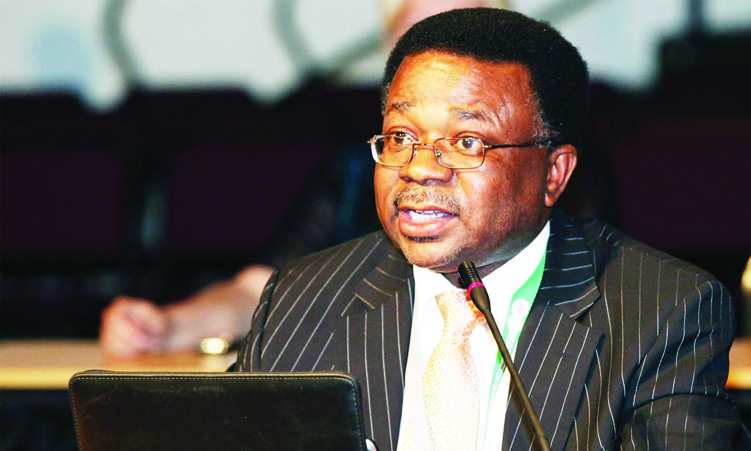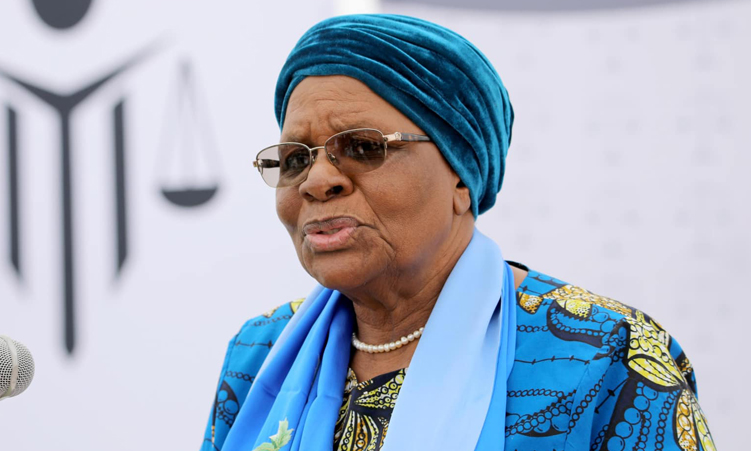David Nuyoma’s appointment as the Capricorn Group chief executive officer (CEO) has sparked concerns due to his previous position as the Government Institutions Pension Fund (GIPF) boss, where he oversaw an investment of N$2 billion of pensioners’ money in the company he will now lead.
The announcement has created a backdrop of scrutiny and questions about the intersection of his previous responsibilities at the GIPF and his upcoming leadership position.
Some in the investment sector are quietly questioning whether Nuyoma’s appointment raises potential conflicts of interest for pumping public funds into Bank Windhoek.
Some GIPF officials have pointed to an industry practice which prohibits executives from taking up jobs in the same industry before taking a cooling off period of between three and 24 months.
Nuyoma yesterday directed all questions to Capricorn, but said there was nothing untoward about his appointment.
“No policies have been breached in my appointment,” he said in a text message.
Capricorn Group spokesperson Marlize Horn yesterday said: “There is no conflict of interest in the appointment of Mr David Nuyoma as the CEO of Capricorn Group, and there are no risks to mitigate regarding any potential conflict of interest.”
She said a transaction, which took place in 2017, is not linked to Nuyoma’s appointment.
Horn said the GIPF board of trustees were responsible for approaching shareholders of the Namibian Stock Exchange (NSX)-listed Capricorn Group at the time, with a proposal to acquire all or part of their shareholding in Capricorn Group.
“The board of trustees of the GIPF approved the investment in Capricorn Group after the conclusion of their governance process, which included, among others, assessments and due diligence performed by the GIPF-appointed advisory panel of independent investment bankers, legal advisers, risk consultants and financial advisers,” she said.
Nuyoma’s appointment this week sent Capricorn’s share price on the NSX up from N$16,50 to N$17,00 – a sign that the market is satisfied with the appointment.
The company’s share price stood at N$8,75 at the time of the GIPF buying into Capricorn Group, and the value has since grown.
Some analysts have credited the Capricorn board for the appointment, which some say was aimed at relieving pressure from Bank of Namibia (BoN) regulations, which are pushing for major changes in the country’s banking sector.
THE TIES THAT BIND
Questions about Nuyoma’s appointment as the new Capricorn boss emanate from the 2017 transaction.
At the time questions were being asked about the GIPF’s motive for buying into the company.
The Namibian reported in 2017 that the GIPF has made a successful bid to acquire 25% of the issued ordinary shares of Capricorn Investment Group (CIG; previously Bank Windhoek Holdings), Capricorn Investment Holdings, CIG.
The transaction saw the GIPF becoming the second-largest shareholder in Capricorn, with a 26% stake in the company.
In terms of the agreement, the GIPF would acquire a 15,5% interest in CIG from Capricorn Investment Holdings, and a further shareholding of 9,5% from Namibia Strategic Investments at a total cost in excess of N$2 billion.
Following the transaction, Capricorn Investment Holdings’ shareholding in CIG will decrease from 56% to 40,5%.
However, questions are now being asked as to whether Nuyoma’s appointment is in any way linked to the transaction.
Nuyoma was the GIPF’s CEO when the deal was finalised.
At the time it was allegedly announced that the pension fund acquired a 25% stake in the company for N$2 billion.
This included a N$1 billion to cover the bank’s capital adequacy ratio requirement from the BoN, meaning the GIPF also freed up money for Capricorn shareholders, which was tied up.
The GIPF then came in by acquiring a 25% stake at market value. This was frowned upon and criticised at the time by some who claimed the GIPF should have negotiated for better.
On top of the acquisition of 25% for N$1,1 billion, the GIPF also injected N$1 billion into the bank.
This was apparently to shore up the company’s liquidity.
But sources in the financial sector said the N$1 billion injection made it possible for the bank’s existing shareholders to cash in on their money.
At the time of the transactions, investment and asset managers quietly questioned why the GIPF was directly buying shares in the bank, while the fund had the option of going through investment and asset managers managing its money by way of bonds and other investment instruments.
*This article has been updated to remove inaccurate statements. Read the follow up article titled: Right of Reply: Capricorn sets the record straight on Nuyoma
Stay informed with The Namibian – your source for credible journalism. Get in-depth reporting and opinions for
only N$85 a month. Invest in journalism, invest in democracy –
Subscribe Now!








